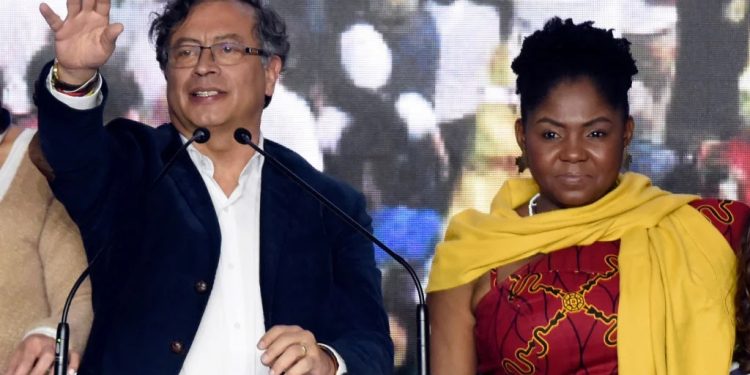COLOMBIA – One candidate is Gustavo Petro, a former guerrilla and longtime senator who is became the Colombia’s first-ever leftist president, calling for a transformation of the economic system with his vice Francia Márquez, 40, an environmental campaigner who has survived at least one assassination attempt.
In 2018, she was awarded the prestigious Goldman environmental prize for her campaigning. Márquez’s selection as the running mate of a serious presidential hopeful breaks the mould in Colombia, where since independence, politics has been dominated by wealthy white men.
Afro-Colombians make up nearly 10% of Colombia’s population of 50 million, descending from enslaved people brought from Africa to work on sugar cane plantations, goldmines and the large estates of landowning Spanish colonists. They remain under-represented in business and politics.
Their opponent was Rodolfo Hernández, a construction magnate who has become the country’s most disruptive political phenomenon in a generation, galvanizing voters largely through his outsize social media presence with promises of “total austerity” and a scorched-earth approach to corruption.
At stake in Sunday’s presidential election was the fate of the third largest nation in Latin America, where poverty and inequality have risen during the pandemic and polls show increasing distrust in nearly all major institutions. Anti-government protests last year sent hundreds of thousands of people into the streets in what became known as the “national strike”, whose shadow hangs over Sunday’s vote.
“The entire country is begging for change,” said Fernando Posada, a Colombian political scientist, “and that is absolutely clear.”
Both candidates inspire anger and hope in voters, and the election has divided families, dominated the national conversation and brought a glossary’s worth of internet memes that form a snapshot of the national mood: Mr. Hernández calling his doubters “crazy” on TikTok; Mr. Petro promoting a jingle encouraging a twist on the illicit practice of vote buying.
Both candidates say they are running against a conservative elite that has controlled the country for generations.
Among the factors that most distinguishes them is what they see as the root of Colombia’s problems.
Mr. Petro believes the economic system is broken, overly reliant on oil exports and a flourishing and illegal cocaine business that he said had made the rich richer and poor poorer. He is calling for a halt to all new oil exploration, a shift to developing other industries, and an expansion of social programs, while imposing higher taxes on the rich.

“What we have today is the result of what I call ‘the depletion of the model,’” Mr. Petro said in an interview, referring to the current economic system. “The end result is a brutal poverty.” His ambitious economic plan has, however, raised concerns. One former finance minister called his energy plan “economic suicide.”




